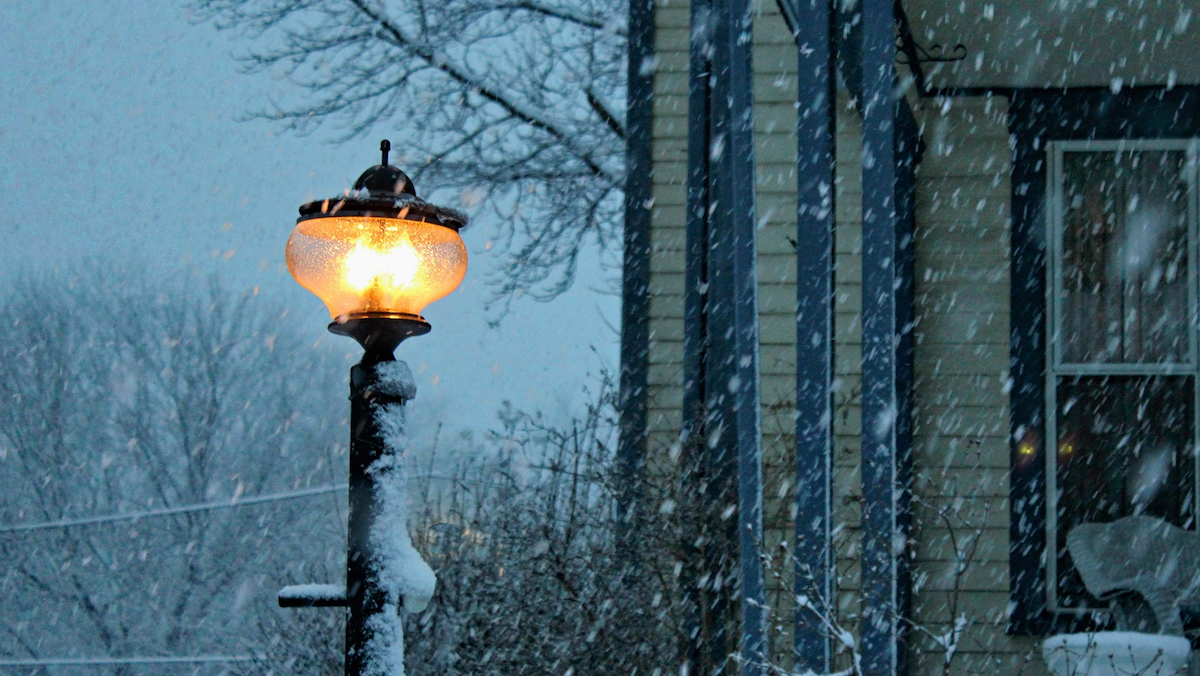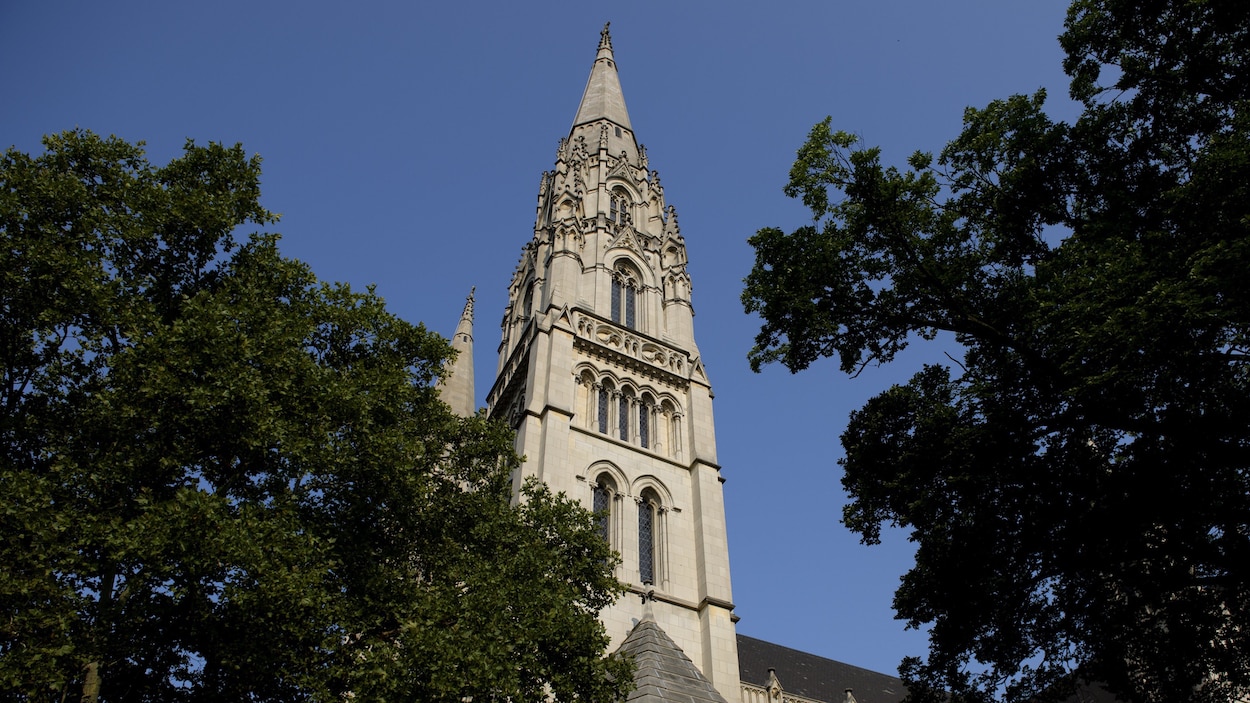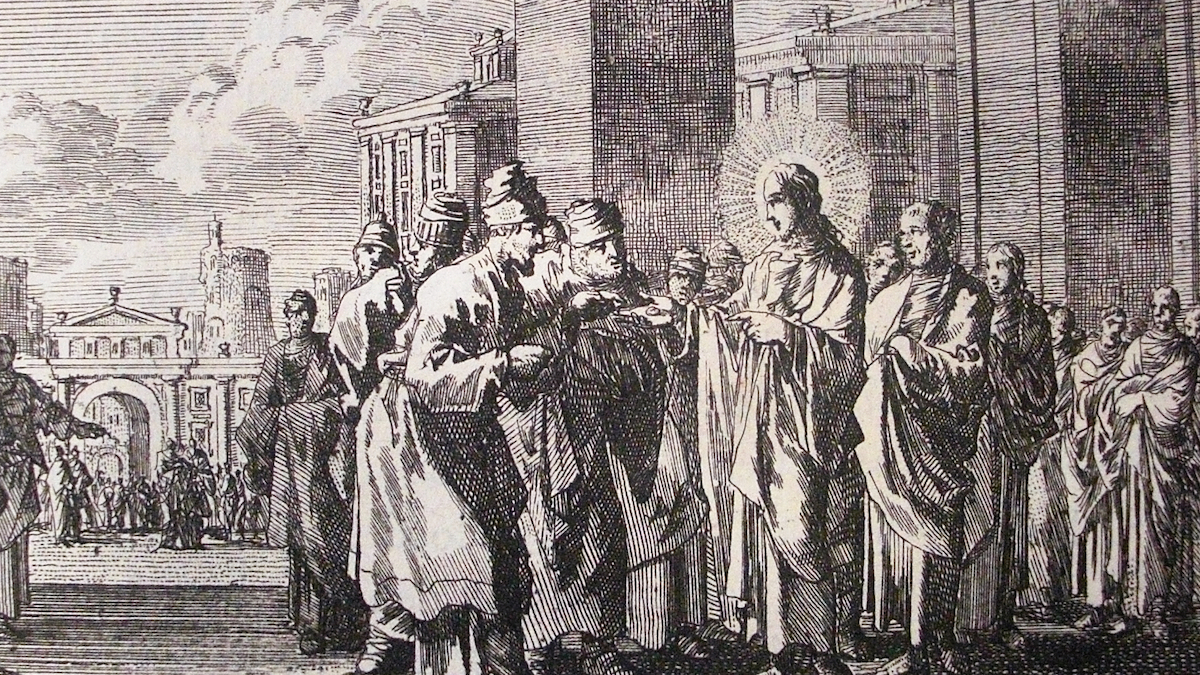When I studied philosophy in the seminary, one of the images or examples that made the most sense to me was Plato’s allegory of the cave. Plato, of course, was a famous Greek philosopher who lived over 300 years before Christ. He wanted to illustrate how many people live according to false values and blind themselves to the truth. Imagine, he said, a group of prisoners or slaves living in a large cave. Because they’ve been chained in place since birth, they’ve never been outside the cave; in fact, they don’t even know the rest of the world exists. The cave is dark, though several fires provide some light. There are some people who walk around in the cave, but the slaves can’t see them. They can see the shadows the fire casts when these people move around—and because they don’t know any better, they think these moving shadows actually exist; they’re the only reality the slaves know. Imagine further, Plato said, that one day a liberator came. After breaking the slaves’ chains, he told them about a wonderful world outside the cave and invited them to come with him. What would their reaction be? Plato suggested that, by and large, the slaves would prefer to remain where they were, choosing a false security rather than a challenging freedom. There might be some who would accompany their liberator to the entrance of the cave, but the brightness of the sunlight would be extremely painful to their eyes, and very few, if any, would dare step out into the real world.
Plato’s analogy contains a great deal of truth—particularly in a spiritual sense. We often use the images of darkness to represent sin and error, and light to stand for God’s goodness and truth. If we’re accustomed to darkness or shadows, the brightness of divine truth and love can be quite painful. It’s no wonder many people prefer to remain in the darkness. Jesus is the One Who calls us into the light, but only we can decide how we’ll respond.
God’s gift of light can be accepted; it can also be misused or rejected. The passage from the Book of the Prophet Isaiah recalls that the lands of Zebulun and Napthali were degraded. This means that these tribes of Israel were devastated by the Assyrian empire because of their sinfulness. However, Isaiah announces that this sadness would be replaced with joy: “The people who walked in darkness have seen a great light; upon those who dwelt in the land of gloom a light has shone.” The Gospel makes it clear that Jesus fulfilled this prophecy; St. Matthew quotes this very passage. Our Lord appeared in Galilee, the former lands of Zebulun and Napthali, announcing the establishment of God’s Kingdom. He called people to repent and to come out of the darkness of sin. Not everyone did, but many followed Him; Peter and Andrew, and James and John, for instance, left behind everything to become His disciples. They are an example for us, but—as the Apostle warns—even those who’ve been enlightened by Christ can allow their spiritual sight to grow dim. St. Paul had established a Christian community in the Greek city of Corinth, but it was soon split by divisions and factions. Paul had to warn the Corinthians not to let their petty quarrels blind them to what was truly important.
We have been enlightened by Christ—but perhaps there are some ways in which we cling to darkness, or prefer to remain in the shadows. For instance, when we come to Mass, we’re in God’s presence, and this is spiritually enlightening—but if we’re not really participating or trying to pay attention, or if our primary concern is how long Mass will last, we’re clinging to shadows or closing our eyes to the light. Perhaps the light of God’s grace shows us that we have personal problems or issues to face up to, or bad habits to overcome—but if we keep putting off this effort, we’re letting the darkness advance. When we use our talents and abilities and opportunities to become successful and materially prosperous, we’re making use of God’s light—but if we then ignore the needs of others and selfishly think only of ourselves, we’re plunging ourselves back into darkness. When we do good deeds, we’re sharing God’s light—but if our primary motive is to gain praise for ourselves or to collect IOUs, that light quickly fades. If we truly appreciate our families, relatives, co-workers, and friends, we’re living in God’s light—but if we start taking others for granted or ignoring their needs and feelings, that light can grow dim. We are greatly blessed to be Americans, and the flaming torch held aloft by the Statue of Liberty is a fitting symbol of our country—but if all we do is complain about the problems and injustices of our society, without somehow getting involved to make things better, we’re spreading darkness and gloom, not light and joy. Perhaps the greatest way God has enlightened us is by making us Christians and Catholics—but if we fail to give a good example by living out our faith, we’re not letting our light shine forth or fulfilling our mission in life.
It’s said that the devil never sleeps. In this regard, spiritual and social darkness is never static and inactive; it spreads its corrupting influence ever-more widely. The culture of death, embodied here in Michigan by the passage of Proposal 3 last November, is a foremost example of this; tragically, our state is becoming one of America’s major centers for abortion. Only through the power of God can this evil tide be reversed—and the Lord is calling each one of us to be a point of light that helps turn it around. Our prayers and good example, conscientious and pro-life votes, and involvement in and financial support of the pro-life movement, is an essential way of making a difference in our morally-darkened society, and of gently but persistently inviting those enslaved by an abortion mentality or living in shadows of moral confusion to let go of their chains and to step into God’s light—a light that isn’t harsh or accusatory, but warm, soft, and liberating.
So much of the world today lives in darkness or shadows. Jesus came to bring light, and He wants us to share it with those around us, thereby transforming our society. Our Lord says to our country, “Repent, for the Kingdom of Heaven is at hand,” and He personally invites each one of us, saying, “Come, follow Me.” Let us humbly ask for His grace, that we may be faithful in responding to His call and generous in sharing His light.








